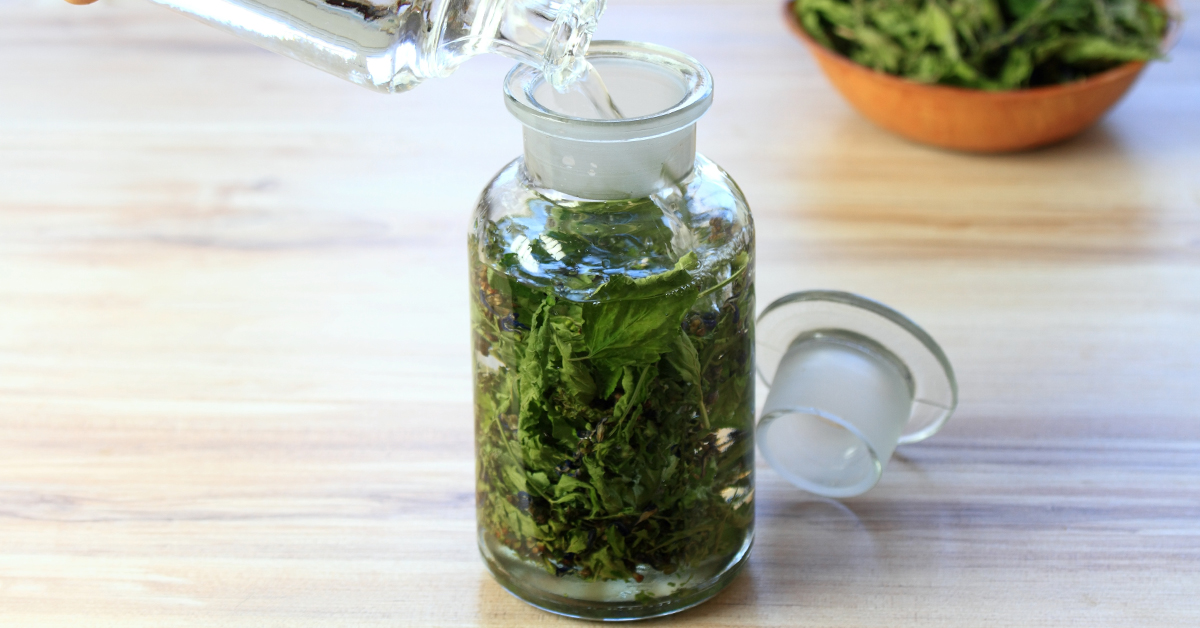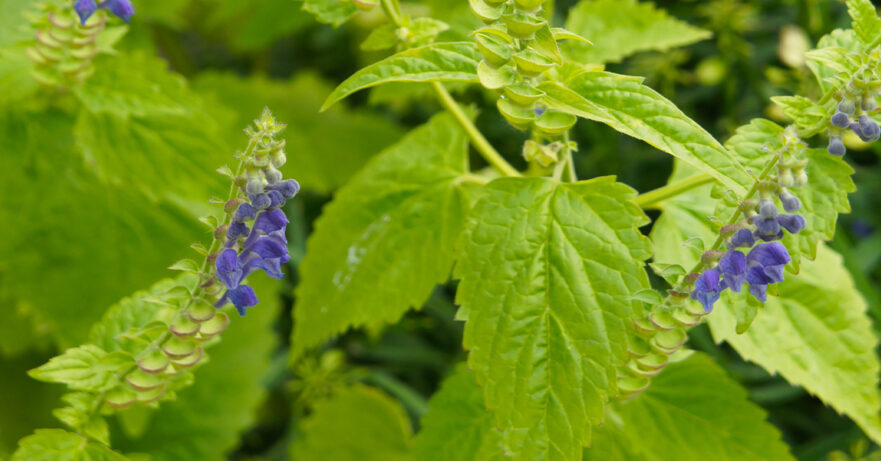In this monograph about skullcap:
📖 Introduction | 🌱 Botanical Description | 📜 Traditional Uses | 🔍 Phytochemistry | ✨ Applications and Uses | 🛡️ Safety Profile
📖 Introduction
Skullcap (Scutellaria lateriflora) is a perennial herb in high esteem within herbal medicine for its nervine properties. Renowned for its ability to ease nervous tension and promote relaxation, the skullcap has been a fixture in traditional healing practices for centuries, offering support for nervous system health and stress relief.
| English Name | Skullcap |
| Latin Name | Scutellaria lateriflora |
| Parts Used | Aerial parts |
| Traditional Uses | Alleviating anxiety, insomnia, and muscle tension |
| Herbal Actions | Nervine, hypotensive, mildly antispasmodic |
🌱 Botanical Description
Scientific Classification
Scutellaria lateriflora belongs to the Lamiaceae (mint) family.
Physical Characteristics
Skullcap is characterized by its delicate, tubular blue flowers and slender, branching stems. Its leaves are lance-shaped and bear a resemblance to a helmet or cap, hence the name.
Natural Habitat and Cultivation Details
Native to North America, skullcap thrives in moist woodlands and meadows. It prefers well-drained soil and a mix of sun and shade, making it a common sight in the wild and herb gardens.
📜 Traditional Uses
Traditionally, skullcap has been utilized for its sedative and mildly antispasmodic effects. It was commonly used to treat conditions such as anxiety, insomnia, and muscle tension. In herbal folklore, skullcap was also thought to protect against negative influences and to promote emotional well-being.

🔍 Phytochemistry (Active Constituents)
Skullcap’s medicinal benefits are attributed to its rich array of phytochemicals, including:
- Baicalin: A flavonoid glycoside that contributes to skullcap’s anxiolytic and neuroprotective effects, offering potential support for nervous system health.
- Wogonin: Another flavonoid known for its anti-inflammatory and antioxidant properties, which may aid in reducing oxidative stress and supporting overall well-being.
- Scutellarin: A flavonoid thought to play a role in the herb’s calming effects, potentially enhancing its use in managing stress and promoting relaxation.
✨ Applications and Uses
Skullcap is revered in herbal medicine for:
- Nervous system support: Skullcap is utilized to relieve anxiety, stress, and nervous tension, making it beneficial for individuals seeking a natural means to calm the mind.
- Sleep enhancement: It is considered a gentle sedative. Skullcap can help improve sleep quality for those experiencing occasional sleeplessness.
- Muscle relaxation: Thanks to the antispasmodic properties of skullcap, it supports easing muscle cramps and tension.
The application of skullcap for these purposes is supported by its unique composition, particularly its flavonoid content, highlighting its value in supporting nervous system health.
🛡️ Safety Profile
Skullcap is generally considered safe when consumed in traditional therapeutic doses.
However, it is important to source high-quality skullcap, as there have been instances of adulteration with other plants.
Pregnant and breastfeeding women should consult a healthcare provider before use.
Due to its sedative effects, caution is advised when using skullcap in conjunction with other sedatives. Individuals with pre-existing health conditions or those on medication are encouraged to seek advice from a healthcare professional before incorporating skullcap into their regimen.
📃 Related Posts
🌱 Related Herbs

